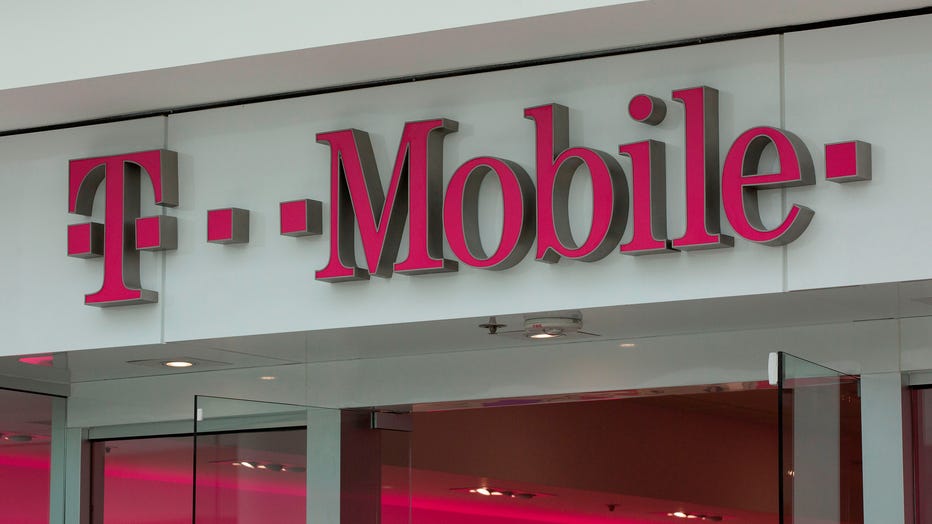Federal judge approves T-Mobile's $26.5 billion takeover of Sprint

Federal judge approves T-Mobile's $26.5B takeover of Sprint
The number of major U.S. wireless companies would shrink from four to three after the deal closes.
NEW YORK - A federal judge has approved T-Mobile's $26.5 billion takeover of Sprint, rejecting objections from a group of states and removing a major obstacle to a shakeup in the wireless industry.
After the deal closes, the number of major U.S. wireless companies would shrink from four to three. T-Mobile says the deal would benefit consumers as it becomes a fiercer competitor to the larger Verizon and AT&T.
But a group of state attorneys general tried to block the deal, arguing that having one fewer phone company would cost Americans billions of dollars in higher cellphone bills.

The T-Mobile logo is seen outside a shop in Washington, D.C., on July 26, 2019. (Photo credit: ALASTAIR PIKE/AFP via Getty Images)
Judge Victor Marrero ruled Tuesday that while that concern was valid, the possibility of it happening was remote.
Marrero's decision comes after the Justice Department already approved the deal. As part of a settlement with the Justice Department, T-Mobile agreed to help create a new, but smaller wireless competitor in satellite-TV company Dish.
Another judge still needs to approve that settlement, a process that is usually straightforward but has taken longer than expected. A utility board in California also has to approve the deal.
New York Attorney General Letitia James said in a statement that her office was reviewing its options, including the possibility of appeal.
Gigi Sohn, a fellow at the Georgetown Law Institute for Technology Law & Policy, said that while consumers are often promised benefits from mergers, “what they are left with each time are corporate behemoths who can raise prices at will, use their gatekeeper power to destroy competition and new voices and hijack regulatory and legislative processes.”
T-Mobile launched its bid for Sprint in 2018, after having been rebuffed by Obama-era regulators. T-Mobile CEO John Legere had seen President Donald Trump's election and his appointed regulators as a good opportunity to try again to combine, according to evidence during the trial.
T-Mobile, which promised not to raise prices for three years, defended its deal as good for competition. It repeated previous arguments that the combined T-Mobile and Sprint will be able to build a better 5G network — a priority for the Trump administration — than either company could alone.
RELATED: T-Mobile promises free 5G to first responders for 10 years if Sprint merger is completed
The deal got the nod from both the Justice Department and the Federal Communications Commission, thanks to an unusual commitment to create a new wireless player in Dish.
The Justice Department only allowed the deal after T-Mobile agreed to sell millions of Sprint's prepaid customers to Dish, a satellite TV company with a shrinking customer base. T-Mobile also has to rent its network to the fledgling rival while it built its own. Dish is also required to build a faster, next-generation network, known as 5G, over the next several years.
The states had said that Dish wasn't certain to succeed as a wireless company and was far smaller than Sprint, and the resulting wireless market would still be worse for consumers.
Dish has spent about $21 billion over a decade buying wireless spectrum, the airwaves for transmitting data and calls, although Dish hasn't done much with it. Analysts have long been skeptical of whether Dish intends to build its own network or sell the spectrum to others. Now Dish faces up to $2.2 billion in fines if it fails to create a 5G network that serves 70% of the country by 2023.
Some analysts have said that Dish has potential as a viable competitor, but a big question is when. Even if it meets the 2023 government-imposed deadline, it still won't reach as many potential customers as Sprint's 4G network does today.

